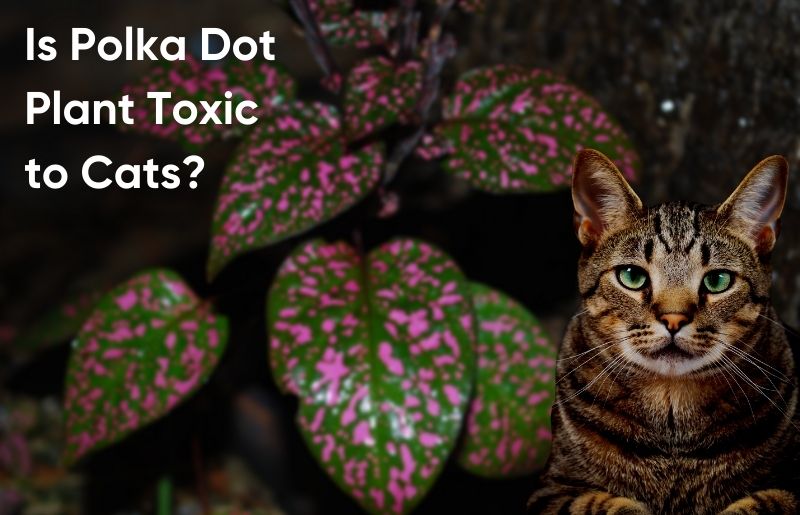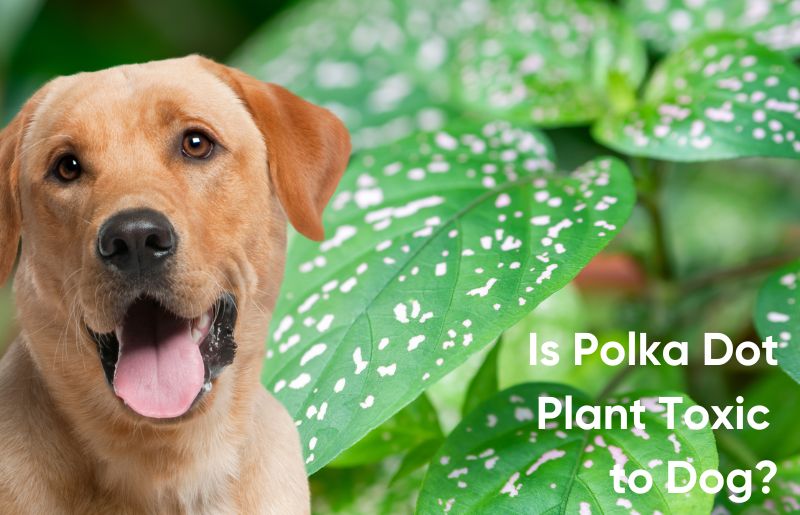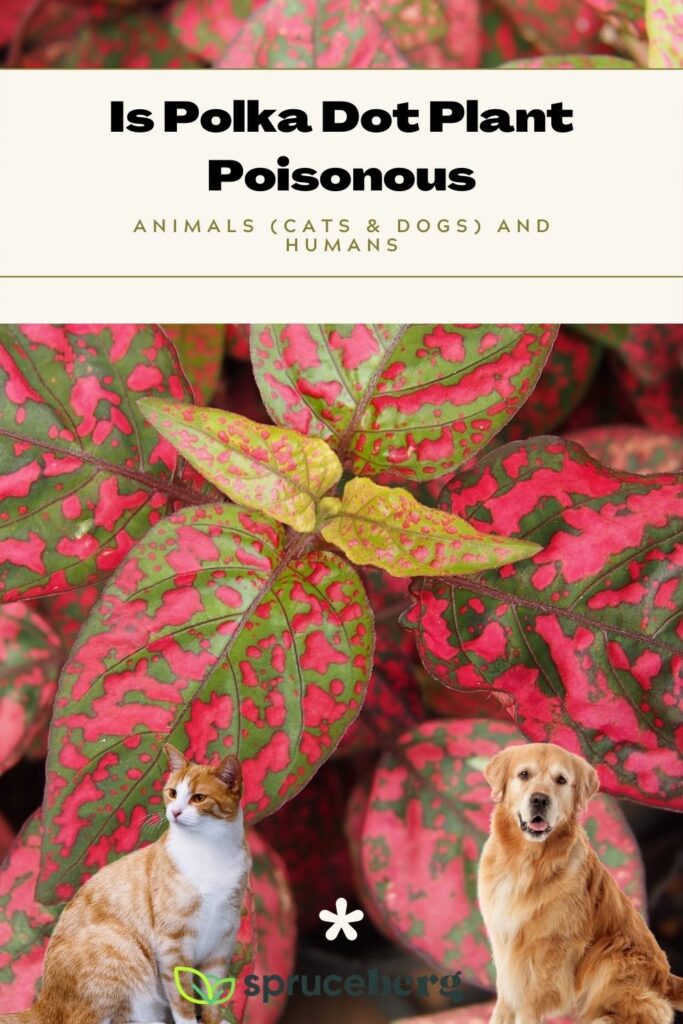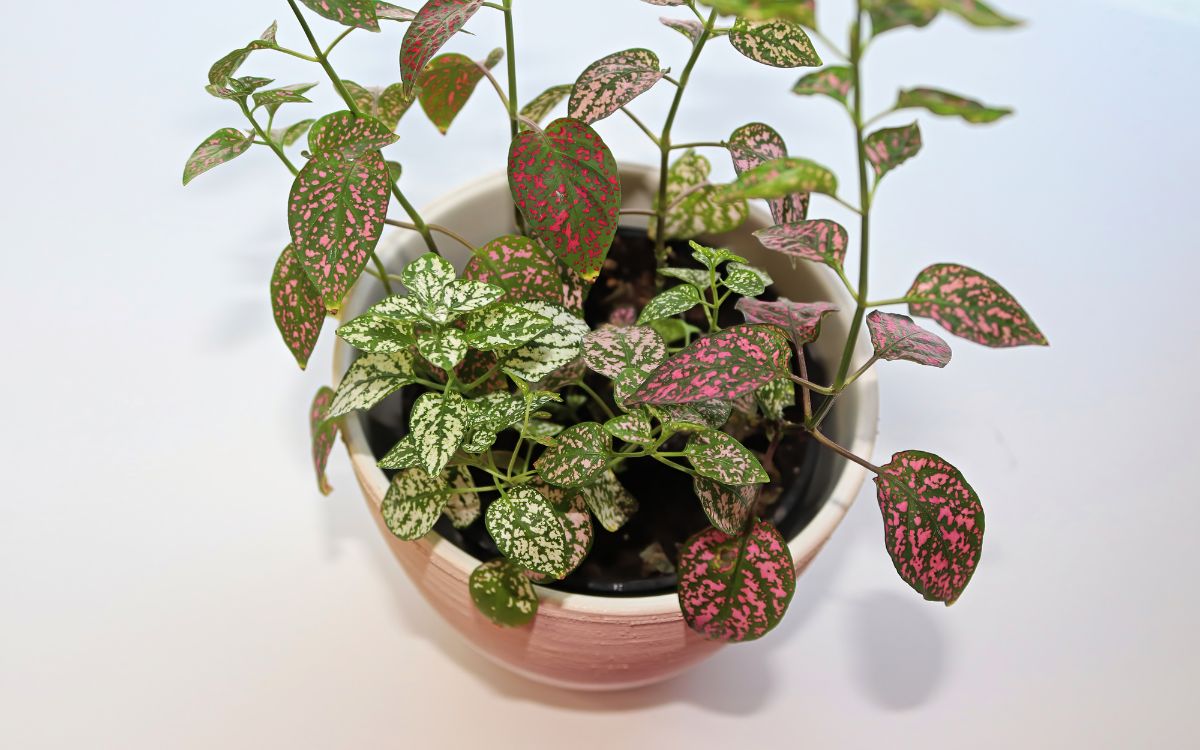Polka Dot plants are pretty beautiful leafy plants and are generally used as indoor plants, but sometimes they are planted outdoors. These plants have many bright colored dots that make them look rather beautiful, but to some, they also look poisonous. So, is your polka dot plant poisonous?
Well, that is something we will discuss in this post. We will also provide you with all the information you need before bringing polka dot plants to your home.
Polka Dot plant is not poisonous or toxic to humans or animals if not ingested. It’s perfectly safe for humans, cats, dogs, and other animals.
Is Polka Dot Plant Toxic?
Polka Dot plants are not at all toxic. It is safe for humans and animals alike if not eaten.
Since it is a non-toxic and harmless plant, you can grow them indoors or outdoors without fearing the toxicity.
Is Polka Dot Plant Poisonous To Animals?
Before bringing any plant to your home, it is vital to learn whether the plant is poisonous or not. The reason is that we have pets and family members at home, and these could become a potential threat to them.
According to NC extension Gardner, it can be easily said that Polka dot plants are not poisonous to animals. But if they consume it could lead to vomiting, diarrhea, etc. The reason is the fact that the leaves are not easily digestible and can cause discomfort to the stomach, and there could be some mild symptoms.
In the event that happens, the best course of action would be to call a vet or a pet care center and get your pet checked.
Are you watering your Polka Dot plants correctly? If not, then read How Often to Water Polka Dot Plants (Avoid THIS)
Is Polka Dot Plant Toxic To Cats?
Polka Dot plants, also known as Hypoestes Phyllostachys, are not toxic to cats. Regular touching or even consuming a small portion of the plant would not cause any harm to the cat. But if it is consumed in large quantities, it would cause discomfort to the cat. Along with that, the cat can also start vomiting and also show symptoms of diarrhea.

If this is not treated on time, it could get worse and harm the cat. If that happens, a vet or a pet care center should be contacted about the cat’s situation for help. This won’t be life-threatening as the stomach mechanism of cats would reject the unwanted food materials but would cause discomfort for the cat.
The best thing would be to keep the plant out of the cat’s reach. Although it may seem strange, giving your cat its own plant will stop them from eating the polka dot plant. Cats will occasionally eat grass to get their daily fiber. According to experts, it may aid food digestion or bring up indigestible furballs.
Is Polka Dot Plant Toxic To Dogs?

Polka Dot plants are not toxic for dogs; if consumed, they can cause vomiting and diarrhea. These won’t kill your dog or anything but will make your dog very uncomfortable.
Take your dog to a vet or a pet care center to get it treated. The best way to avoid this issue is to train your dog not to eat anything outside of what you give them.
There is another type of polka dot plant known as polka dot begonias, which are poisonous to dogs, cats, and all animals. The root of these plants is toxic, and even the sap of the plant has poisonous juice. The earliest signs, which include vomiting, can be hazardous since they harm the kidneys, and you don’t know what will happen if the chemical crystallizes into stones and causes renal failure. You are strongly advised to watch over your dog and ensure they are safe. If your dogs are properly trained, they won’t consume these plants.
It is indispensable that you check the type of polka dot plant you are planting in your house.
Is Polka Dot Poisonous To Humans?
No, the polka dot plants, also known as Hypoestes Phyllostachys, are not poisonous to humans. Just like animals, if humans consume them, they will also lead to vomiting, diarrhea, and nausea.
But it is very different when it comes to polka dot begonias. Begonias as harmful to humans, especially children, because they have poison in their sap. For adults, vomiting, nausea, and a burning feeling in the whole body are symptoms. As for children, it could be quite fatal and may lead to severe issues.
If a human consumes begonias, they should be immediately rushed to a hospital or a doctor so that they can receive proper care and treatment.
Polka Dot plants are Perennial when grown inside the house but tend to show annual behavior when grown outdoors. To know more about this, read Are Polka Dot Plants Perennial?
What Is Part Of Polka Dot That Is Poisonous?
No part of polka dot plants is poisonous. You can grow these plants in pots to keep in your home, or you can also grow them in your garden.
But this is quite different in the case of Polka dot begonias. Polka dot begonias belong to the Begoniaceae family. The plants in this family are poisonous to animals and humans and can cause different health issues, such as kidney failure. Some signs of poisoning from Polka Dot Begonia are
- Nausea
- Stomach ache
- Vomiting
- Dizziness
- Allergies
- Skin irritation and rashes
- Burning sensation in mouth and body
- Drooling
- Diarrhea
What to do if My Pet Ate Polka Dot Plant?
If your pet ingests polka dot plant, then you are advised to get in touch with a vet for asking help.
You can contact ASPCA by dialing (888) 426-4435.
The polka dots are not that poisonous, so they shouldn’t be a life-threatening issue.
If your pet frequently roams around the area where the polka dot plants are grown, then I suggest you change the plant’s location as you don’t want your pet to eat them when you are not around them.

Wrap Up
Polka Dot plants are non-toxic and not harmful, but if consumed, they can cause discomfort or harm to animals and humans. The plants should be kept out of reach for kids and pets alike.
Though the plant is not poisonous, looking out for any kind of allergies would be good, and refrain from ingesting them. It would be wise to take a few precautions while handling these plants, such as wearing masks wearing gardening gloves. Avoid touching your mouth or eyes with the glove. Also, make sure to wash your hands thoroughly with soap after handling them.

Leave a Reply